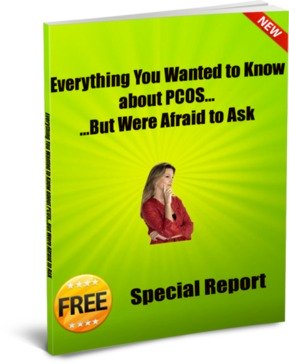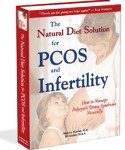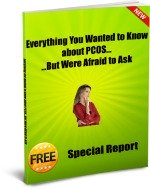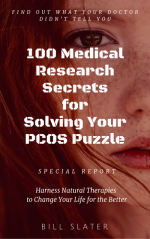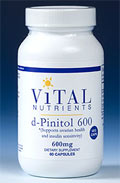PCOS Review Newsletter #136
1) What's Better for P C O S -- Walnuts or Almonds?
2) More Environmental Factors Linked to P C O S Problems
1) What's Better for PCOS -- Walnuts or Almonds?
Some fats and oils are good. Some are bad. Do you know the difference? For example, are nuts something you should eat or avoid?
For women with polycystic ovary syndrome, raw whole nuts are sources of helpful fats, according to research from the University of California.
Thirty-one women with polycystic ovary syndrome were given either walnuts or almonds (31 grams of total fat) for six weeks.
Although each nut had somewhat different effects, the overall effect of each one was quite beneficial.
Weight did not increase with either walnuts or almonds. And, both nuts reduced "bad" LDL cholesterol levels.
Walnuts reduced long-term glucose (blood sugar) levels whereas the response with almonds was more variable.
Walnuts increased sex hormone binding globulin, which is a good thing for keeping your hormones under control. Almonds tended to reduce the potency of male hormones.
We recommend moderate consumption of a variety of raw nuts along with fresh vegetables, adequate high quality protein, and some whole fruit occasionally.
For more information about nuts and seeds in relation to polycystic ovarian syndrome, refer to chapter 8.11 of The Natural Diet Solution for PCOS e-book.
In addition to nuts, fish oil has been shown to be quite beneficial for most health issues associated with polycystic ovarian syndrome.
Source:
Kalgaonkar S et al, Differential effects of walnuts vs almonds on improving metabolic and endocrine parameters in PCOS, Eur J Clin Nutr. 2011 Mar;65(3):386-93.
2) More Environmental Factors Linked to PCOS Problems
A while back we talked about how the environmental chemical Bisphenol A is associated with PCOS.
Another study, from Nanjing Medical University in China evaluated 108 women with PCOS and 108 women free of the disorder.
They found that risk factors for PCOS were: occupation, education, disposable plastic cups for drinking, cooking oil fumes and indoor decoration. The strongest risks factors were disposable plastic cups for drinking, cooking oil fumes and indoor decoration.
More recent studies from Nofer Institute of Occupational Medicine in Poland and Mount Sinai School of Medicine in New York are strongly suggesting that daily exposure to endocrine-disrupting environmental chemicals is associated with early breast development in girls and precocious puberty.
Three common classes of chemicals -- phenols, phthalates and phytoestrogens -- are known to interfere with your hormonal system.
These disrupters can be found in numerous consumer products such as nail polishes, cosmetics, perfumes, lotions and shampoos. Other sources include various plastics, coatings on time-released medications, building products and plastic tubing.
Early continual exposure can lead later on to breast cancer, thyroid disorders, diabetes, asthma, allergies, attention deficit disorder, pregnancy and fertility problems, and more.
It's all a little depressing and overwhelming, isn't it? No one wants to live a life with out nail polish, cosmetics, shampoos, plastic drinking cups, or pleasant objects in our home made out of petrochemicals.
Regardless of how you feel about it, you'll have to decide how important it is to you to deal with PCOS. If you plan on becoming pregnant, how important it is to you to reduce your future daughter's risk of developing PCOS? If you're a mother, how important to you is the future health of your daughter?
The more important all this is to you, the more action you'll want to take to minimize exposure to environmental chemicals of all kinds. As a start, think of using glass, ceramic, wood or other natural materials as part of your lifestyle and environment instead of plastics. Use natural or organic products wherever possible.
Sources:
Huang WJ et al, [Analysis of environmental factors and polycystic ovary syndrome], Zhonghua Fu Chan Ke Za Zhi. 2007 May;42(5):302-4.
Wolff MS et al, Investigation of relationships between urinary biomarkers of phytoestrogens, phthalates, and phenols and pubertal stages in girls, Environ Health Perspect. 2010 Jul;118(7):1039-46.
Jurewicz J et al, Exposure to phthalates: Reproductive outcome and children health. A review of epidemiological studies, Int J Occup Med Environ Health. 2011 Jun;24(2):115-41.
"In order to live free and happily, you must sacrifice boredom. It is not always an easy sacrifice." -- Richard Bach
PCOS Health Review
This free newsletter gives you original and immediately usable information to help you deal with PCOS.
Get the latest research, tips for improving your health, answers to questions, success stories, and more!
Your e-mail address is totally secure. We will never misuse your information.
Enter Your Email Above to Subscribe Today
and Get Your Questions Answered in this Free Special Report!
